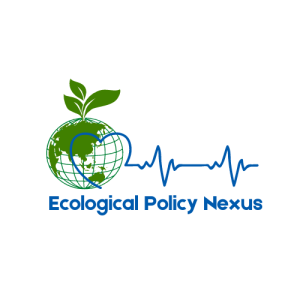
Ecological Policy Nexus is a non-profit organization disseminating environmental literacy and consciousness. The team is committed to disseminate knowledge in a holistic manner to mitigate climate emergencies among youths, researchers, and practitioners. The EPN team under my supervision advocates for interdisciplinary approaches integrating applied science with social science, indigenous worldview, and other disciplines to prevent climate and ecological disruption.
Disseminating Environmental Literacy
Humankind is a significant part of the whole universe and nature. Unawareness of the rest of nature and its functionality involves people in environmental pollution and ecological disruption. We aim to spread conceptual literacy about the existence of nature and its method of operation. Besides that, we attempt to arrange workshops, seminars on how our misconduct generates negative and destructive responses from the environment, and what modern techno-centric initiatives have been taken by different countries of the world to tackle them.
Developing and Executing Social Attitudinal Shift Models among Locals
Positive change in social interaction and attitude of humans can downsize environmental crime and injustice. We construct and disseminate attitudinal shift models for specific societies based on their circumstances. Accordingly, sustainable behaviors toward the environment will guide the way to reducing climate change damages.
Emphasizing the Sustainable Climate Projects and Initiatives
World leaders, organizations, and people are taking diverse initiatives to restore the climate and limit environmental injury. We attempt to shed light on those projects and policies and discuss more them. Therefore, people worldwide will be able to observe the efforts and investments of humanity to safeguard mother earth and themselves. For instance, the traditional practices of the indigenous people towards the nature.
Evaluating the Current Projects and Policies
Few countries across the world have successfully designed sustainable projects and implemented them. The rest of the countries follow up their development models considering particular geographic and demographic limitations. We involve environmental researchers to study, analyze, and evaluate the projects and policies to create climate protection model projects for specific countries, geographic regions.
Mission & Vission
- Identifying and discussing the sustainable policies and initiatives around the world.
- Evaluating the projects and policies by governments and non-governmental organizations to design research-based sustainable models for a particular country or region.
- Discussing and researching the environmental issues damaging the ecosystems and climate and disseminating recommendations from youth perspectives.
- The team is working to highlight the positive initiatives and policies of the Bangladesh government and different organizations. It is further executing the development projects directly or indirectly disturbing the ecological settings within the country.
- Developing sustainable models for attitudinal shifts in social interaction and interaction with the environment among the team members’ local people. Implementing diverse social awareness campaigns to actualize the change.
- Engaging and empowering youths to reconstruct a sustainable society.
We are here to stand for the earth. We believe that everything on this planet has alternatives, except Our Mother EARTH. The purpose of the Ecological Policy Nexus is to strive for sustainable solutions and justice-based approaches that will facilitate the welfare of both the ecological setting of the planet and humankind.
Scopes of Engagement
- Environmental pollution
- Environmental policy and analysis
- Climate change
- Natural disasters
- Climate-induced migration
- Climate change and geopolitics
- Political economy of climate change, environmental emergencies and disasters
- Political ecology
- Sustainable development
- Ecocides
- Colonial developmental practices
- Development-induced climate crises and displacement
- Ecological foreign policy
- Sustainable environmental projects and initiatives
- Climate Diplomacy
- Globalization, capitalism and climate change
- Renewable energy and energy policy
- Consumerism
- Faith-based environmental solutions and practices
Publication Guidelines
- Topics and concepts should be limited within the scope of activities of the organization.
- Publication type- news, insights, feature article, book review, review article.
- News (300-500 words), insights, feature and book reviews (500-1000 words), and review articles (1000-1500 words or more).
- Times New Roman/Arial font, font size 12.
- Less or equivalent to 5 per cent of plagiarism is accepted.
- APA Referencing style. In-text citation in Endnotes.